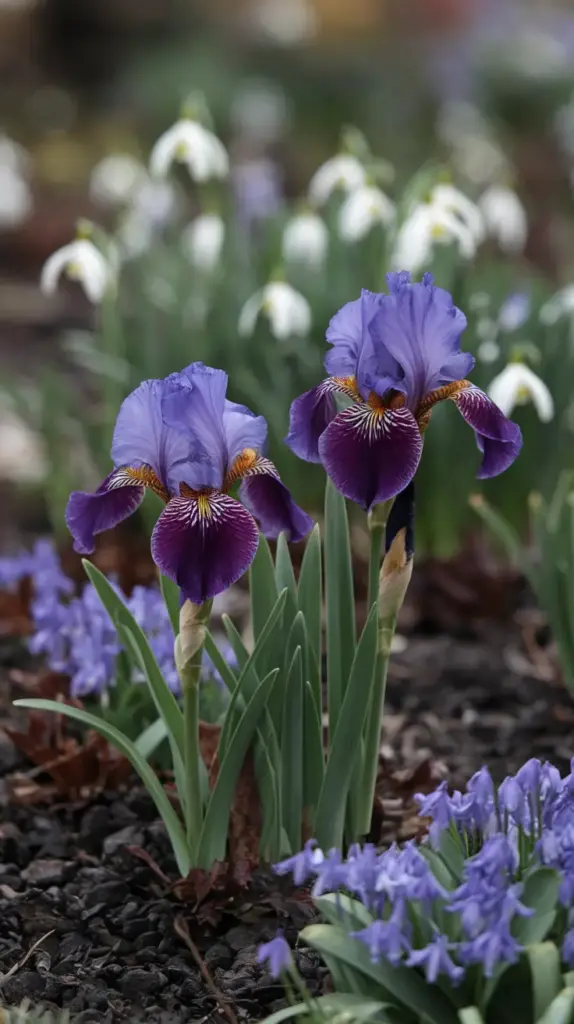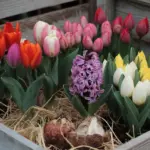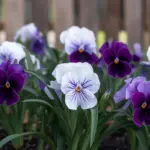8. Iris Reticulata: A Delightful Early Spring Surprise

I’ll never forget my first encounter with Iris Reticulata in my garden. It was a chilly February morning, and there they were – these absolutely stunning jewel-toned blooms pushing through the last patches of melting snow. Talk about a mood lifter!
Planting and Care Tips
Let me tell you, these little beauties are pretty much foolproof, but there are some tricks I’ve learned over my 15 years of growing them. First off, well-drained soil is absolutely non-negotiable. I learned this the hard way when I first planted them in my clay-heavy border – total bulb soup by spring! Now I mix in about 30% sand with my garden soil, and they’re thriving.
The best time to plant these dwarf iris bulbs is in fall, typically around September to early October. I plant them about 4 inches deep and 3-4 inches apart. Here’s a pro tip: mark their location with small stakes because once they go dormant, it’s super easy to accidentally dig them up when planting summer flowers!
Color Varieties and Combinations
My absolute favorite variety is ‘Harmony‘ with its deep purple-blue petals and striking yellow ridge. But don’t sleep on ‘Katherine Hodgkin’ – she’s got this otherworldly pale blue color with intricate patterns that look like they’ve been painted by fairy artists. I love combining them with early snowdrops and winter aconite for a knockout early spring display.
Maintenance and Division
These iris are pretty low-maintenance (thank goodness!), but they do appreciate being divided every 3-4 years. I usually do this in late summer when the foliage has completely died back. One bulb can multiply into several over time – free plants, anyone? Just make sure to replant them immediately and keep the soil slightly moist until the ground freezes.
Common Problems and Solutions
While Iris Reticulata is generally pest-resistant, they can sometimes face issues with:
- Bulb rot (solved by improving drainage)
- Weak blooming (usually means they need dividing)
- Foliage flopping (typically from too much shade)
I’ve found that planting them near the base of deciduous trees works wonderfully – they get full sun in early spring before the trees leaf out, and the summer shade actually helps prevent the bulbs from getting too hot.
Speaking of early spring bloomers, wait until you see what’s coming up next! Our next flower, the majestic Witch Hazel, is going to blow your mind with its unique spider-like blooms and incredible fragrance. Click the next button below to discover how this unusual shrub can add both winter interest and early spring magic to your garden. Trust me, you won’t want to miss this one – it’s been a total game-changer in my winter garden design!









GIPHY App Key not set. Please check settings